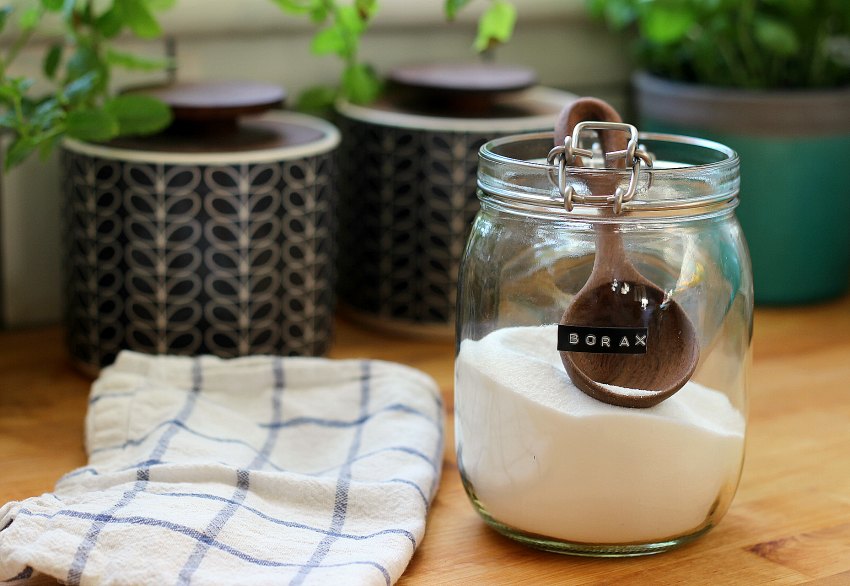The Best Way To Wash Fruits & Vegetables To Remove Pesticides
To support the running costs of Moral Fibres, this post may contain affiliate links. This means Moral Fibres may earn a small commission, at no extra cost to readers, on items purchased through these links.
Wondering what the best way to wash fruits and vegetables to remove pesticides is? Wonder no more! I’ve found the most effective way to do this, backed up by science.
Eating fruit and vegetables is a key element in leading a healthy lifestyle. However, many fruits and vegetables are grown using pesticides. After picking, these pesticides remain on the skin of fresh produce. Meanwhile, some pesticides can penetrate into the flesh of fruits and vegetables.
Some fruits and vegetables have a higher pesticide load than others. While buying organic food is one of the best ways to reduce the number of pesticides on the produce we buy, it can be cost-prohibitive to shop organically. This is particularly so with the cost of living crisis impacting household budgets across the country.
Thankfully, there are ways to remove pesticides from the skin of fruits and vegetables easily, effectively and cheaply, and backed up by science.
Table Of Contents
- Scientists Say This Is The Best Way To Wash Fruits & Vegetables To Remove Pesticides
- How To Wash Fruit and Vegetables To Remove Pesticides
- What About Pesticides That Penetrate The Skin Of Produce?
- What If Soaking Produce For 12-15 Minutes Isn’t Practical?
- Why Are Pesticides Used On Fruit & Vegetables?
Scientists Say This Is The Best Way To Wash Fruits & Vegetables to Remove Pesticides

A 2017 scientific study by researchers at the University of Massachusetts, and published in the Journal of Agricultural & Food Chemistry, carried out research into washing fresh produce. Here they investigated the effectiveness of commercial and homemade washing agents in removing surface and internal pesticide residues from apples.
Interestingly this study established that pesticides that were found on the surface of the apples were most effectively removed by a common household ingredient. That ingredient being bicarbonate of soda (also known as baking soda). This was in comparison to using tap water or bleach.
How To Wash Fruit & Vegetables To Remove Pesticides
According to this research, here are the best ways to wash your fruit and vegetables to remove pesticides. I’ve provided different methods, depending on how much produce you have to wash.
In each case, it’s best to wash your fruit and vegetables right before you plan to cook or eat them. This is because in many cases, moisture on your produce can cause it to go bad faster.
In The Sink
- First, wash your hands with soap and water to remove any dirt and germs from your hands.
- Next, clean your sink using a natural cleaning product – such as a non-toxic cleaning spray – to remove anything untoward in your sink.
- Now, fill your sink with cold water – approximately half full.
- Add three tablespoons of bicarbonate of soda to the water, and agitate the water to dissolve the powder.
- Place your fruit and vegetables in the water to wash them. Follow the instructions below for washing specific fruits and vegetables, before leaving them to soak for 12 to 15 minutes.
- Finally, remove your fruit and vegetables from the water, and let them dry thoroughly before prepping or eating.
In A Bowl
- First, wash your hands with soap and water to remove any dirt and germs from your hands.
- Using a measuring jug, fill a clean bowl around half full with cold water. Make a note of how much water your bowl holds.
- Next, add 1 teaspoon of bicarbonate of soda for approximately every 450 ml of cold water you added to the bowl, and stir to dissolve.
- Place your fruit and vegetables in the water to wash them. Follow the instructions below for washing specific fruits and vegetables, before leaving them to soak for 12 to 15 minutes.
- Finally, remove your fruit and vegetables from the water, and let them dry thoroughly before prepping or eating.
Notes For Washing Specific Fruits & Vegetables
Leafy vegetables, such as lettuce or cabbage should be separated into their individual leaves before washing. This allows the bicarbonate of soda to get into all the nooks and crannies to remove surface pesticides.
Soft fruits and vegetables – such as strawberries, grapes or tomatoes – should be rubbed lightly with your fingers. This helps to gently loosen any chemical residue, dirt or wax – without damaging your produce.
Firm fruit and vegetables – think carrots, apples, potatoes, melon, or cucumber – can generally tolerate being scrubbed with a soft-bristle vegetable brush. This scrubbing action helps remove anything untoward on their surface.
What About Pesticides That Penetrate The Skin Of Produce?
The researchers of the study note that washing apples with bicarbonate of soda reduces pesticide levels mostly from the surface. They advised that peeling the apples is more effective in removing the penetrated pesticides.
However, they do note that many beneficial nutrients found in the apple peel will be lost. Apple peels contain 72% of the total amount of vitamin E and vitamin K contained within the apple. It also contains around half the total iron content, as well as all of the apple’s vitamin B9 content. Vitamin B9 is also known as folic acid.
With this information in mind, I would say that washing your fruit and vegetables to remove surface dirt and pesticides is sufficient.
What If Soaking Produce For 12-15 Minutes Isn’t Practical?
I’ll admit, soaking every single piece of fruit or vegetable for 12 to 15 minutes before you go to eat or cook with it isn’t always so practical. Putting barriers up to eating healthy food isn’t something I want to do either.
Simply soaking your fruit or veg for a minute or two in a little bicarbonate of soda, and giving it a scrub, admittedly may not be as effective as the longer soak time prescribed. However, it will remove some pesticides and dirt, and be clean enough to eat.
Why Are Pesticides Used On Fruit & Vegetables?
Pesticides are used on fruits and vegetables for a variety of reasons. Pesticides help to protect food crops from plant diseases and pests. They are used to control weeds and/or insects that damage and destroy food crops.
However, pesticides are not without their controversy. Pesticides can contaminate land, water, and other plants. Their use can kill precious pollinators, such as bees, as well as other creatures, such as birds and fish. Pesticide use can also harm farmers, farmworkers, and local communities.
So grab some bicarbonate of soda and give your fruit a wash. Once you’ve done that, read up on the work of organisations such as Pesticide Action Network UK (PAN UK), which promotes safe and sustainable alternatives to hazardous pesticides.
You can also check out the Good Food, Good Farming campaign, which campaigns for a radical transition of EU food and farming policies, and the RSPB’s calls for responsible pesticide management.
Found this post useful? Please consider buying me a virtual coffee to help support the site’s running costs.




